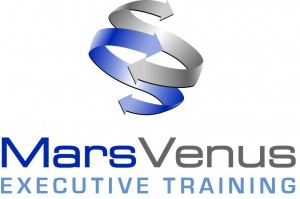I was reflecting on my work career (past, present, and future) this morning and came to the realization that my job is “awesome.” OK, that word is overused, but I have young adult and pre-teen daughters, so I think I understand the different meanings it has, but I’m talking about the old definition of “awesome.” In others words, I enjoy almost every part of what I do for a living, and there is research in work psychology that explains why that is the case. So, here are the elements that make up an “awesome work career,” and some tips on how to get more of those elements in your own work life.
Meaning. An awesome job is one that has meaning. There is a purpose to your work, and you have to find that higher purpose. There is a scene in the movie Cedar Rapids, where Ed Helms’ nerdy character makes insurance sales sound like an uplifting career (“we are the heroes on the disaster scene, working to rebuild lives…”). Even mundane jobs, like customer service can be viewed as having meaning (e.g., helping clients, giving customers a great experience). If you can’t find the meaning in your current job after looking hard, it may be time to look hard for a new career.
Accomplishment. Choose a career where you can accomplish things, take pride in those accomplishments, and celebrate them. I take pride when I publish a paper, give a great lecture, or finish a blog post. The pride comes from readers and students who comment favorably on my accomplishments, and I’ve been known to celebrate with a glass of wine.
My friend Carlos makes car-racing accessories. He takes pride in the fact that he can build better quality accessories, and do them quicker, than anyone else at his company. I tell our college students to accomplish something at their summer internships – a project, a report, or helping run a successful event. If their internship doesn’t require it, I suggest they talk to their supervisor about taking on some extra, challenging project, perhaps one that the supervisor hasn’t had time to complete. It makes for a better internship experience to accomplish something that makes a distinct contribution, and the same goes for every job.
Positive Relationships. Nothing can make a career more awesome than working with terrific people, and building strong and rewarding relationships with them. I’m fortunate to have amazing, talented, and (yes) awesome students. I get to meet and network with wonderful clients in my consulting work, and I have some of the best research collaborators anyone could hope for. And, I try to steer clear of the bad relationships – those that can make your job an ordeal, and make you question yourself and your career choice.
Research clearly shows that relationships at work can be the greatest source of pleasure or the most tormenting source of pain and stress. Cultivate positive relationships and work hard to avoid the bad relationships (previous posts offer help in dealing with bullies and bad colleagues and bosses).
Balance. Very few people can have awesome careers if their lives revolve entirely around their jobs. An awesome career is one that allows time for family, friends, and the ability to pursue non-work-related interests. I often talk to people who are unhappy because their jobs consume all of their time and energy. Some of them change to careers that allow greater balance and flexibility, and although there are tradeoffs (e.g., less money, prestige, or a slower ride up the ladder). I rarely hear any regrets from them.
Does good fortune play a part in someone having an awesome career? To some extent. But it is more likely that people have to plan, make tough strategic career decisions, and work hard to make their career awesome.
___________________________________________________________________________________________
Published by Ronald E. Riggio, Ph.D.

